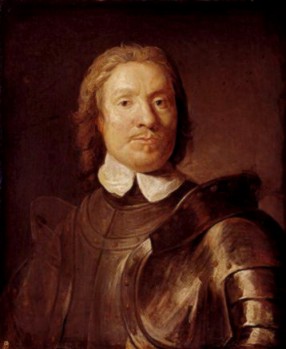What You Need to Know:
• The passengers on the Mayflower were religious dissenters from England called Pilgrims. You can consult the Mayflower Society for details on Mayflower descendants. [Mayflower Society]
What You Need to Know:
• The seven year Civil War caused a tremendous amount of social upheaval. Families were split and forced to move and there was considerable hardship and tragedy. Religious persecution was a keynote feature of the period.
• The Civil War period also corresponds to a time of great expansion in the British Empire overseas (Newfoundland and Nova Scotia in 1621, Virginia became an official colony in 1624, Maryland in 1634, Bahamas in 1646, New York seized from the Dutch, etc.).
• A combination of new opportunities overseas and civil war at home resulted in a substantial increase in emigration from England to the new colonies.
• Parish record keeping was sporadic during the Commonwealth Period (1642 to 1660). It is very difficult to trace ancestors during this period. For example, during this period many marriage ceremonies were performed outside of churches and banns were often called in public marketplaces, not in churches. In particular, in 1653 the right to perform marriages was removed from the clergy and given exclusively to justices of the peace. Between 1657 and 1660 either clergy or justices of the peace could perform marriage ceremonies.

• It has been estimated that 15 to 20% percent of all baptism records from the time period 1640-1660 are missing.
What You Need to Know:
• Jewish genealogy records date from 1687, the time of the first synagogue in London. Birth, marriage and death records were kept in Portuguese until 1819, when the records switched to English.
• Early Jews in England often practiced their faith in secret and used several aliases to hide their Jewish identities. As well, many went so far as to become active members of their local Anglican church (and thus were married, baptized and often buried in Anglican graveyards). This was usually done for business reasons since English guilds (which controlled most of the major trades) prohibited Jews.
• In general, synagogue registers almost always recorded marriages and deaths (because the ceremony required the payment of a fee) although births were not always registered. Circumcisions (carried out eight days after birth), however, were usually recorded by both the surgeon performing the operation and the synagogue because both were paid for their services.
• Marriage records sometimes contain a copy of the actual marriage contract.
• Jewish wills often list all the aliases used by a person, which can be very helpful when trying to trace historic records.
• Here are some important dates to remember if you are tracing your Jewish ancestors in England: 1728 Jews allowed to own land; 1833 Jews could become barristers; 1835 Jews allowed to vote: 1846 obtain military commissions and 1871 enter Oxford or Cambridge University.

